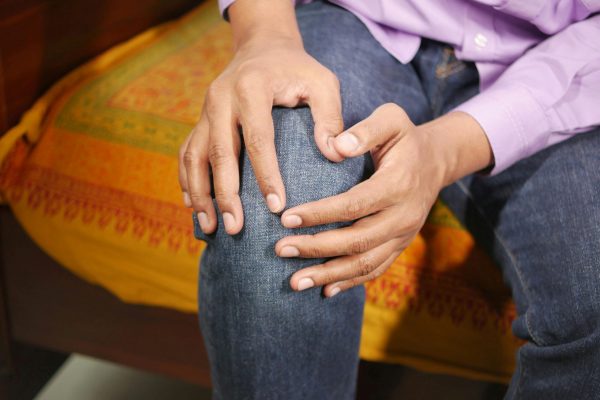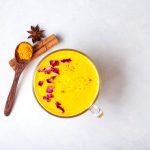Are knees that pop, creak, crunch or make grinding noises something you should be concerned about?
Well, the occasional crack or pop probably isn’t anything to worry about. In most cases, that’s just gasses being released from the joint.
But if one or both of your knees regularly makes rubbing, creaking and grinding sounds, it might be a symptom of inflammation and cartilage damage. It could also be a sign that you’ll start experiencing arthritic knee symptoms in as little as the next 12 months.
This is true even if you aren’t currently experiencing any knee pain. And it doesn’t matter if you think you’re too young to develop arthritis, either. The fact is, more than half of all people with symptoms of knee arthritis are younger than 65 years of age.
This means a lot of people are spending the last 20, 30 and even 40 years of their lives with arthritic knees. And a great many of them will end up undergoing knee replacement surgery at some point in the future.
So if you frequently (or always) have noisy knees, don’t ignore it. Instead, you should take immediate measures to ward off osteoarthritis.
What to Do If Your Knees Sound like a Bowl of Rice Krispies
There’s a word for all of those weird noises that come from your knee joint. It’s called “crepitus.” And it could increase your likelihood of developing arthritic knees by about 300%.
Now, I’ll be the first to admit. There’s no sure-fire way to avoid arthritis. Still, there are several things you can do to improve your chances of remaining free of this condition.
Regular physical activity, in particular, shows great promise in treating and preventing knee symptoms. As a matter of fact, moderate to vigorous-intensity exercise not only improves joint function, it also reduces disability in people with – or who are at high risk of – knee arthritis.
It’s especially important to maintain strong leg muscles to support your knees. If your knees are normally pain-free, exercises like squats, lunges and sprints are great for these muscle groups.
However, if you currently have knee pain, these types of exercises can actually make matters worse. (On the other hand, there’s nothing wrong with doing them in the pool! The water will keep you buoyant, which allows you to do the exercises without stressing your knee joints.)
Additionally, activities like walking, bicycling and swimming are great for everyone. And a lot of my patients see great knee benefits with traditional tai chi and yoga sessions.
Eating a healthy, anti-inflammatory Mediterranean style diet can also provide joint support. Enjoying this way of eating can actually slow down the decay of cartilage and slash inflammation.
Plus, eating like a Mediterranean can help you lose weight, which is a big factor when it comes to sidestepping arthritic knees. Carrying around excess pounds is strongly linked to the development of arthritis, particularly when it comes to the knees.
More Protection against Arthritic Knees
One thing arthritis patients have in common is reduced concentrations of hyaluronic acid (HA) in their synovial fluid. This compound protects cartilage and prevents it from degrading. It also improves the density of cartilage cells and decreases synovial inflammation.
This makes HA a great weapon when it comes to cushioning joints and protecting your cartilage. It also helps to ease movement if you’re already having problems. I recommend taking 150 mg of a good quality hyaluronic acid supplement daily.
Another good choice is chicken cartilage extract. It contains type II collagen. This is a type of collagen that’s needed for the synthesis and repair of connective tissue. Taking 400 mg daily may provide anti-inflammatory activity and improve joint flexibility.
If you already suffer from arthritis pain, I suggest adding a couple more supplements.
Green lipped muscle extract is one. Just 150 mg daily can reduce joint tenderness, morning stiffness and improve pain levels.
I also like curcumin. Take 500-1,000 mg twice a day to shut down inflammation. Look for one that contains 2-5 mg of bioperine (a black pepper extract) to help boost absorption.
SOURCES:
Lo GH, et al. Subjective Crepitus as a Risk Factor for Incident Symptomatic Knee Osteoarthritis: Data from the Osteoarthritis Initiative. Arthritis Care Res (Hoboken). 2018 Jan;70(1):53-60.
Roos EM, et al. Positive effects of moderate exercise on glycosaminoglycan content in knee cartilage: a four-month, randomized, controlled trial in patients at risk of osteoarthritis. Arthritis Rheum. 2005 Nov;52(11):3507-14.
Song J, et al. Do Inactive Older Adults Who Increase Physical Activity Experience Less Disability: Evidence From the Osteoarthritis Initiative. J Clin Rheumatol. 2017 Jan;23(1):26-32.
Dyer J, et al. Effect of a Mediterranean Type Diet on Inflammatory and Cartilage Degradation Biomarkers in Patients with Osteoarthritis. J Nutr Health Aging. 2017;21(5):562-566.
Oe M, et al. Oral hyaluronan relieves knee pain: a review. Nutr J. 2015; 15: 11.
Crowley DC, et al. Safety and efficacy of undenatured type II collagen in the treatment of osteoarthritis of the knee: a clinical trial. Int J Med Sci. 2009; 6(6): 312–321.
Coulson S, et al. Green-lipped mussel (Perna canaliculus) extract efficacy in knee osteoarthritis and improvement in gastrointestinal dysfunction: a pilot study. Inflammopharmacology. 2012 Apr;20(2):71-6.




